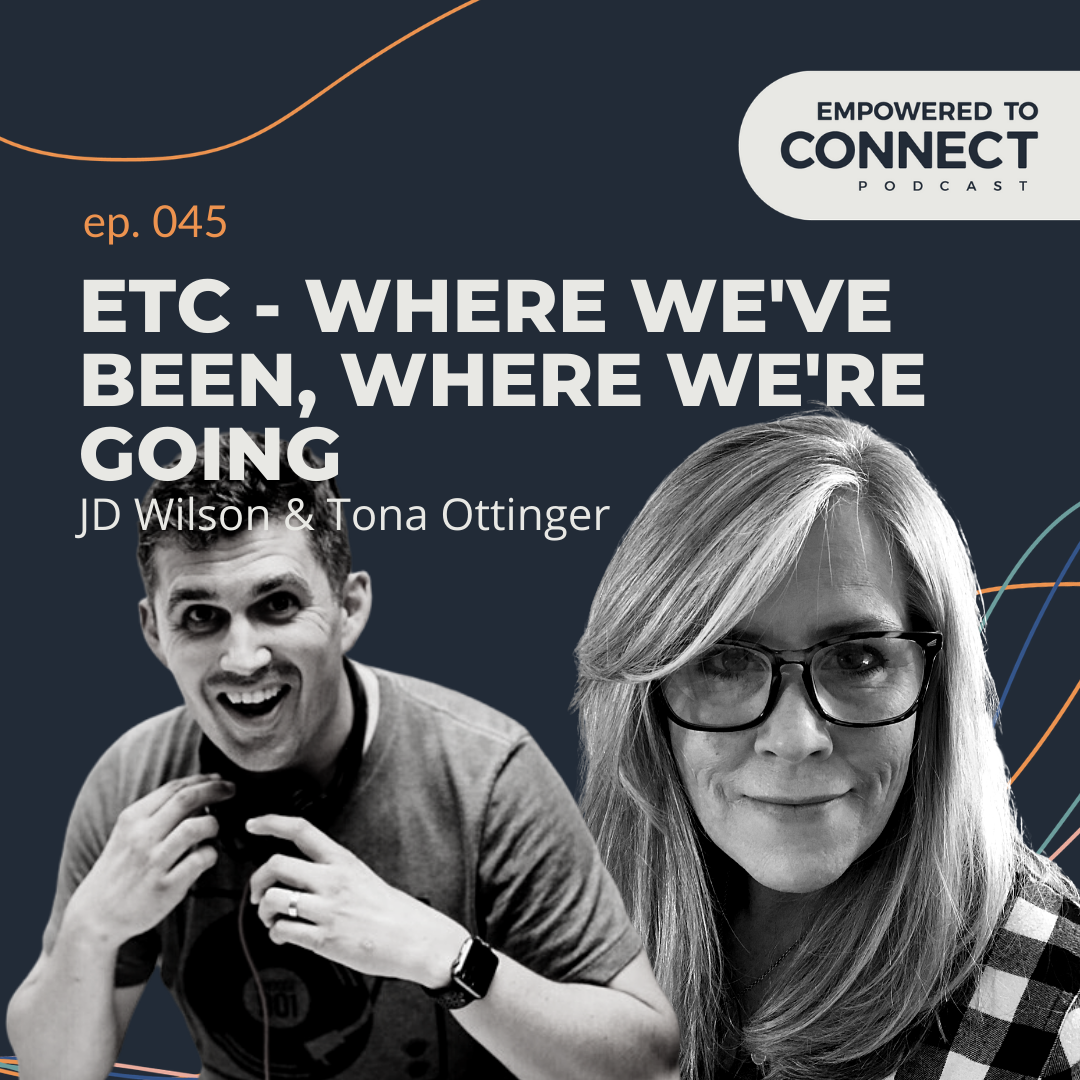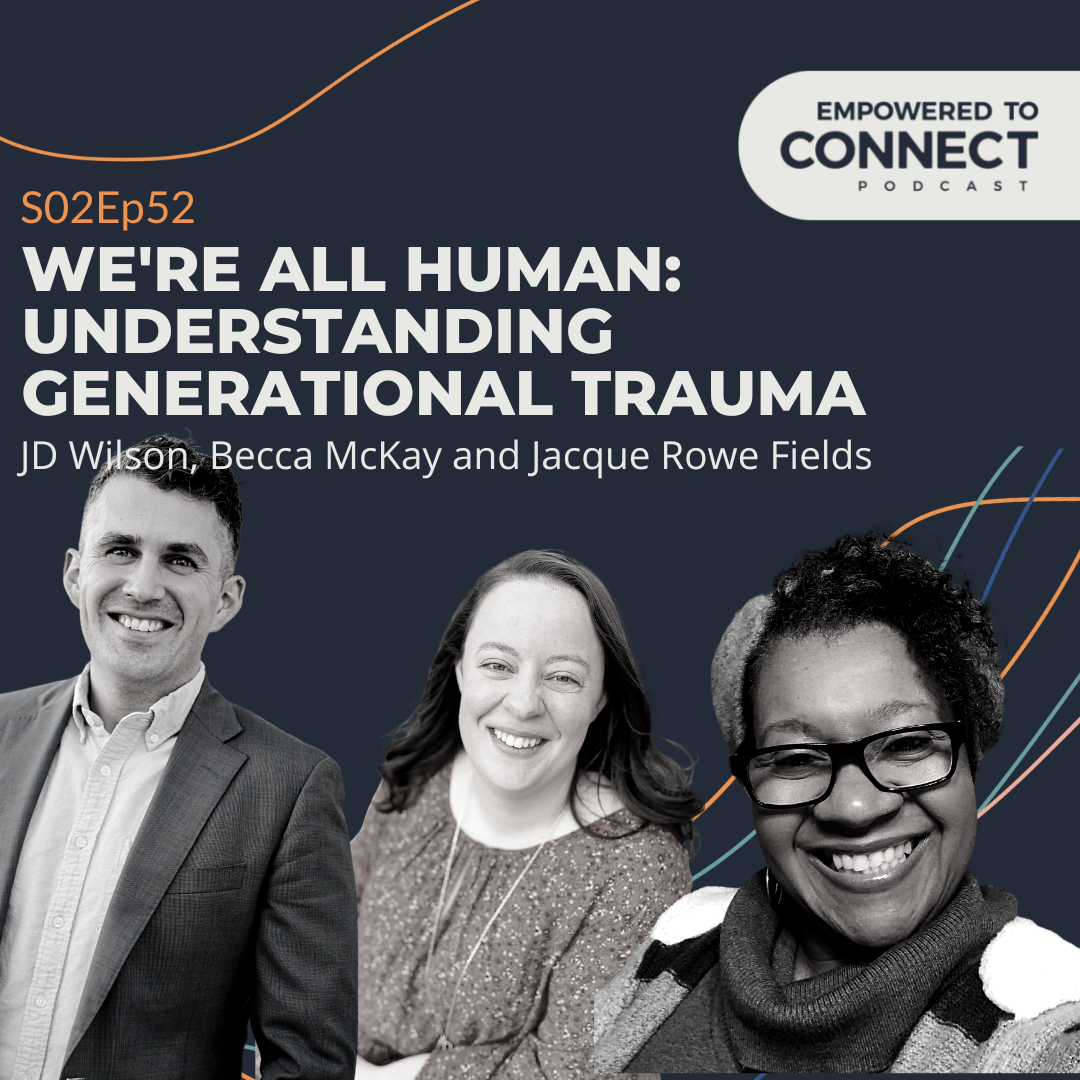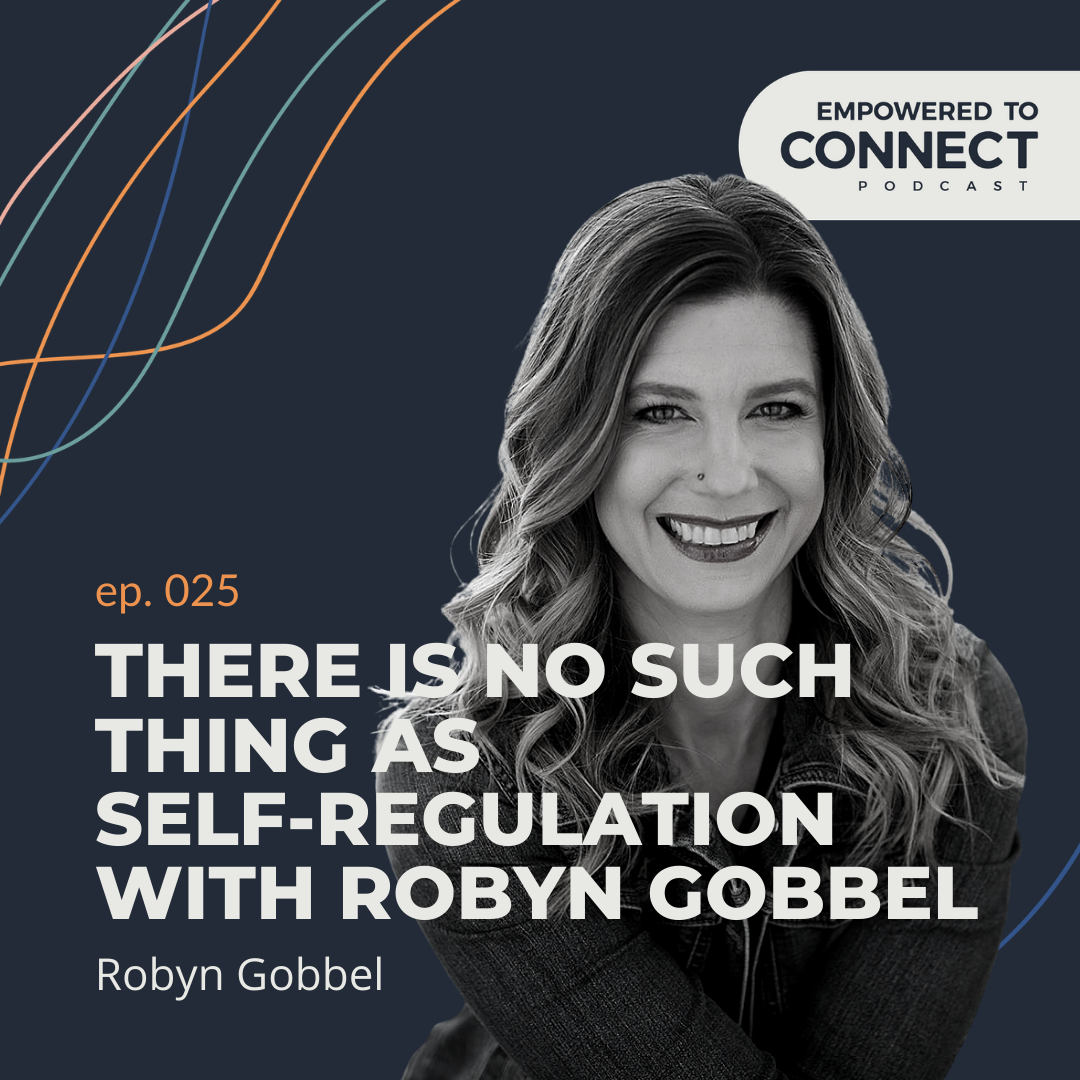Episode Transcript
[00:00:11] Speaker A: Welcome to Carpool Q A where we give you one topic, one conversation to get you from point a to point b. I'm JD Wilson. We're here with Tana Odinger and Becca McKay and we wanted to talk today. It's my choice or my turn to bring a question and so I want to ask a question that it is possible it's too broad and if it is, then no one will ever hear this. But if it's not, then we will talk. But this is an actual question from a friend of ours I mentioned we were recording today and just said hey, anything you want to ask?
And this friend just labeled out a bunch of different things that get labeled as kind of the main goal of parents. What are parents main goal? The main goal of parenting. And so he know here's all these different things. I feel like the culture or the church or friends or growing up, whatever says. But I wonder what the eTC perspective would be. Is there a main parenting goal that encapsulates all the important parenting things?
[00:01:13] Speaker B: Oh my goodness gracious.
[00:01:15] Speaker C: That is before we can you rattle off what he said in that long.
[00:01:20] Speaker B: List, can you think of any of.
[00:01:21] Speaker C: The things he said?
[00:01:23] Speaker A: Yes. To help your kids thrive, to grow them into self sustaining, contributing members of society, to help them discover who they are, to disciple them, point them to Jesus, give them all the tools they need to be emotionally healthy, equip them to be well adjusted adults, et cetera.
[00:01:36] Speaker C: Just a few.
[00:01:39] Speaker B: Statement that encapsulates all of good holy smoly concise is not my friend. So I don't have anything say here because I have just a lot of words, a lot of thoughts and not a single one sentence. No.
Yeah, I do want it to be like a very long explanation.
Becca, do you have a concise sentence?
[00:02:05] Speaker C: Put me on the spot man, or.
[00:02:08] Speaker B: I'm going to give you my long, rambly processing way.
[00:02:13] Speaker C: Let me try a concise.
[00:02:14] Speaker B: Okay, let's see.
[00:02:15] Speaker C: Let me try a concise the goal of parenting from etc's perspective.
See your kid, your actual kid, who they are.
See their potential, help them walk towards it while offering connection.
If you don't know me, you know that I'm overthinking every single thing that I'm saying. Because here's what I'm not saying yes. I'm not saying that every kid that you parent will reach their full potential. I'm saying help them. I'm not saying you will have a close relationship with every kid because you can't control that. But you can sure offer.
I mean my non etc. Becca represents her own views. What I would want to do in the future is what my dad has done, which has had four kids who are completely different, who believe completely different things across every end of the spectrum. And he has a unique relationship with each of us. So that's what I would want with my Becca hat on. I would want to have unique relationships with kids that don't end whenever the kids turn into adults. That's what I would want. But I think that that is a tall order.
[00:03:31] Speaker B: Yeah. I think that we might run the risk of saying, like, a connected relationship is the end goal because that might not happen based on their openness to reciprocate.
So what was noodling around in my head is our charge, is what is my role to play in cultivating the space, the relationship, in the things that I can control. And I can control my mindset, and I can control my curiosity, and I can control what I learn and understand, and then I can control sometimes my behavior, not all the time, but sometimes I repair it. That's me coming back. So I was landing in that realm of seeing meeting needs, the things that we can control. And then offering a relationship, which we understand for a lot of our listeners, is a very dynamic thing in and of itself, because some are parenting kids that have biological or through foster care or adoption or kinship or blended families. And so we understand that the relationship is a funny little thing to even put a barometer on because it's dynamic. And so this is why it is a harder thing to offer.
[00:05:02] Speaker A: I like how Becca was like, oh, gosh, that's so hard. And then rattled off a.
I mean, all these things. Now if you could take Becca's sentence and then sub bullet point it. Yeah, I think all of my friends bullet points do fit under there, right? Like, we want all those things for.
[00:05:26] Speaker B: Well, maybe, Jd, I would say yes, some people's, some people's might not. If I can just say, like, there are some things that are intrinsically your moral values and your perspective, and you might want it for your kids, but that isn't probably going to always happen. So you're going to have to deal with expectations, which goes, I think, back to the, like, see your kid for who they are and walk them out. You know what I mean? So this is where those peripheral other things can get us clunky and we may have to do some business with them. And I just say that from experience, I had rainbows and butterflies and a lot of expectations for even what I thought a good parent looked like or a good kid or a good family.
And man, oh, man, the only way that the audinger family is standing is because I decided to actually see the kid.
[00:06:24] Speaker A: Yeah.
[00:06:25] Speaker B: And be like, every one of them are going to go in a different place and space and they have limitations to their capacity. I mean, we do have, one of our children has an intellectual disability. We have to do business with our academic ceiling.
[00:06:40] Speaker A: Right.
[00:06:41] Speaker B: They deserve a mom and dad that then support that capacity. You know what I mean?
[00:06:48] Speaker A: Yeah.
[00:06:48] Speaker B: So, man, those other things, sometimes we have to do business with them in order to offer our presence and see them.
[00:06:56] Speaker A: It's good.
[00:06:57] Speaker C: Can we spend just a minute, since we have a little time, can we just break apart some of those statements? I have a couple that I just want to kind of chew into a little bit because they sound really good on the surface. And I think they're so close. Like the heart behind the things that you rattled off were good, like good heart motivation. But one of them was the goal is, I think you said something about self sustaining or independent. I can't remember the words.
And I think that it is good for adults to look at kids and try to walk them towards the most independence that they can have. But I think what happens if you chew into that a little bit is that independence looks different for different people. And the amount of independence that someone can have looks different depending on lots of things, depending on where they are. I mean, even think about if we take adoption, foster care and even mental illness off the table and think about a person who is strong and independent, and then as they get older, they start to have dementia, the amount of independence that that person can have safely changes whenever that sets in. So I just think there's what we hope and what we want and what we dream about. And then if you chew into it, there's like things where it kind of breaks apart. And what I think parents do a lot of times, or adults in general do a lot of times, is we feel so much pressure and like we did something wrong because, fill in the blank, this kid didn't move out when they turned 26, or this person didn't successfully hold a job, or this person didn't graduate high school, or this person moved away and went bankrupt and doesn't have money anymore. And all those things, we end up taking other people's behavior and then we point it right at ourselves. I must have not done a good job.
And that's what I think we want to break apart with the etc mindset is we want to break apart that kind of.
[00:09:00] Speaker B: I would. I think that's what I was feeling, Becca. So thanks for putting a fine point on. And it's. It's so much about a heart and a posture, and that heart and posture then informs our behavior and then informs our relationship and our expectations for even what we would classify as good parenting is so complicated.
And I think what I would hope for as an organization and as a group of people who are doing our best to show up for ourselves, each other, and our kids is that we would see every single one of those scenarios as, again, this very dynamic, individual scenario.
[00:09:51] Speaker A: Yes.
[00:09:52] Speaker B: And that's that posture of offering. And you cannot force a relationship. So a connected relationship actually can't even actually be the goal. The goal is, who am I? Am I safe? Am I curious? Am I willing to be flexible? Am I willing to change my mind about something? Am I willing to see my kid and celebrate them and who they are and not who I thought they would be or wish they were or hope they even will be? Because if that's all I'm thinking about, I'm missing my kid today.
So it's very present action. It's very who am I to them today?
So I have hopes for where that will take us. But I can't control that either.
[00:10:43] Speaker A: The stupid thing about parenting is it just keeps coming back to yourself.
[00:10:47] Speaker B: I mean, all over again.
Don't melt into depression. I know. We're all like, we're done. We're like, where's the chocolate cake?
[00:11:02] Speaker A: I think the beauty is I feel like I have started to learn that, and I'll be starting to learn that the rest of my life.
It takes some reminders, but just that picture of.
We talked recently about finding your village, right? Can we just pull back our expectations and seek out what we need in that moment? Can we do that with our kids? Can we pull back the expectations? It's homework time. It's late. You want them to go to bed. They're, pardon the expression, farting around, just like, doing other stuff on their computer. Because why does every kid have to have a computer to do homework now?
But you're trying to fight the distractions of all of the Internet while on their homework. And can we pull back for a second to just remember that kid might have a different capacity in that moment than the other kid you were helping with homework, who's already peacefully asleep upstairs, or the kid who just gave up through a fit, broke, the computer, walked out. So each of our kids has to be cared for individually, taken care of individually but also I think that what Tom, you said, that constant kind of reassessing of expectation with the baseline being, I'm just going to keep trying to be a student of my kid and learn who they are, learn who they're becoming. And hopefully sometimes we get to see around the corner a little bit so that if they're.
I don't know why this picture is came to me, but they're in the barrel in the river having a great time, but they're headed for Niagara Falls. And you're like, hey, this is great right now.
Let's come over to this side for a few minutes. Hopefully sometimes you can see around that corner, and then there's a relationship from a kid who has watched you evolve and grow with them and watched you have their back and watched you be patient and willing to learn and non judgmental and all of that. So in those moments when you need to kind of pull some parenting capital in, you can do that to be able to help guide them.
[00:13:10] Speaker B: I love that picture, JD, because even what you just said is, I don't want us to end our little 15 minutes time together and think, oh, it's all this very nebulous concept. I think that one of the things that feels important to us just at the organization level is that we don't say these really lofty ideas without any grit or concepts or practices or sort of best practices behind them, because that idea of it doesn't happen without intentionality. So maybe my other closing word would be could. If I could take Becca's sentence and deconstruct it and write the word intentional in there. Like, it does actually take some things from us. We actually have to do some business.
We have to behave in a certain kind of way that fosters felt safety and trust and vulnerability and relationship.
So it's a very active kind of parenting. It's a very engaged kind of parenting. It takes a lot from us. It really does. And we don't always know the outcome. We don't get to control the outcome, but we can control our own contribution and invitation and offering as we walk in relationship. So that it's an active kind of offer, which is the reason I love that word so much. But the outcome, we're hoping for the best.
[00:14:39] Speaker C: Yeah. And that's all you can do. If I had to take my long sentence, and now that I've had 15 minutes to process, if I had to.
[00:14:46] Speaker B: Say it in literally once, do it again. Yeah, let's have an edit. Come on, Becca.
[00:14:50] Speaker C: I think I would say, and I don't like my second word, but roll with me. I think I would say offer support to your individual child.
And support means the right nurture, the.
[00:15:01] Speaker B: Right structure, the right whatever.
[00:15:02] Speaker C: But I think if I had to.
[00:15:04] Speaker B: The right scaffold everything, sum it up.
[00:15:07] Speaker C: In one sentence, what is etc. Parenting. You would offer support to your individual child?
[00:15:15] Speaker B: I love it.
[00:15:15] Speaker A: Good.
[00:15:16] Speaker B: That's it. We're done now. Forever and ever. That was all. I was kidding.
I'm just joking. Now we will spend 100,000 hours of time unpacking that one succinct sentence. Yes. Making the complex accessible.
[00:15:31] Speaker A: Yeah. So send all your parenting questions from here on out to Becca at exactly.
[00:15:38] Speaker B: For reals. Though not good at responding to emails.
Just send them to the void of no response over here.
[00:15:47] Speaker A: Well, thank you all. This is great. So, okay. For Becca Fortana, for everybody here at ECc. I'm JD. We'll see you next week on Carpool Q A.


